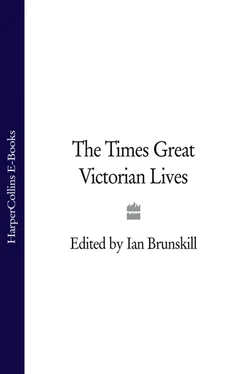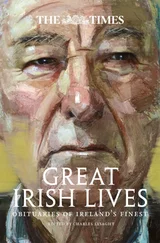The young Prince, reduced, with his mother, to a private station, spent eight years then at the Augsburg Gymnasium; then six more as a student under domestic tutors at the Castle of Arenenberg, in the canton of Thurgau, on the Lake of Constance, became proficient in history and mathematics, skilful in fencing, horse-manship, and swimming, and curious about military affairs; joining the ranks of the Swiss Militia, and making the acquaintance of the Federal General Dufour. Next to the pale reminiscences of Court pageantries in his early childhood, nothing, perhaps, so powerfully contributed to form the character of the future Emperor as the influence of the mother in whose house he grew up as an only child. The marriage of Hortense with Louis Bonaparte was, by his confession, ‘forced and ill-assorted.’ Seven months before the birth of their third son the Royal couple parted never to be re-united. It was not without contention that the ex-King of Holland, now Duke of Saint Leu, made good his claims to his elder son, leaving the younger in the undisputed possession of the mother. Chagrined as she seemed with her retirement at Arenenberg, Hortense, however, not unfrequently spent the winter in Italy, chiefly at Rome. It was not under the ascendancy of such a mother that the aspiring youth could learn resignation to a humble lot. Louis Napoleon was taught to look for a change with as full a confidence as he would expect daylight at the close of the natural period of darkness. It little mattered when, where, or by what means the turn in his fortunes might come. Enough that an opening would be made. The Man was there; he would not have to wait long for the Hour.
The July Revolution in Paris was hailed as the dawn, but it was only a momentary and deceitful twilight. The Prince’s advances met with no favour from the men at the head of the movement in France, but a chance soon offered itself in Italy. The outbreak in the Roman States in February, 1831, found both the sons of Hortense in arms under the Italian tricolour. There was a bloodless campaign – a mere promenade under Sertognani from Foligno to Otricoli; then a journey to Forli, where the elder brother died of the measles on the 17th of March. Louis Napoleon, attacked by the same complaint at Ancona, was tended by his mother, smuggled away to Marseilles and Paris, and hence, after vain endeavours to obtain a restingplace, conveyed, a convalescent, to Arenenberg. On the downfall of the Italian cause, the Prince was seized with enthusiasm for Polish independence. He travelled through Germany on his way to Warsaw, but the tidings of the final catastrophe met him in Saxony, and for four years, from 1832 to 1836, he was forced back to his life of expectant leisure on the Bodensee. While, in all probability, the future candidate for power, at the early stage of his career, sought only for distinction as a soldier and a patriot, more than one short cut to fortune seemed to present itself to him. At Foligno and Forli he was emphatically hailed as ‘the Prince;’ Polish Generals tempted him with the proffered command of their legions; at the London Conference his name, it is said, was brought forward as a candidate for Belgian Royalty, and he was even, it would be difficult to say with what truth, put down among the suitors for the hand of Maria da Gloria of Portugal. Any ambitious views of that nature he, however, invariably disclaimed. To struggling nations he would only bring a volunteer’s sword; and as to France, ‘the hope to be able to serve her as a citizen and soldier was in his eyes worth more than all the thrones in the world.’
His devotion to France, however, was stimulated by other considerations than those of disinterested patriotism. The Duke of Reichstadt had died at Schönbrunn, and the Prince was now the acknowledged head of the Napoleon dynasty. Notwithstanding the greatest dissimilarity of mind and heart, his intense admiration for his uncle led him to a strange identification of himself with the great conqueror. His landing at Cannes, and ‘the flight’ of the Imperial Eagle from steeple to steeple, till ‘it folded its wings on the towers of Nôtre Dame,’ were, he thought, feats only to be tried again to meet with the same success. Nor was he altogether out of his reckoning. From 1831 to 1848 Bonapartism in France had made common cause with Republicanism. The First Empire, it was argued, had been an era of war and despotism; but it had peace and freedom in reserve. There was no limit to which ‘Napoleonic ideas’ could not be stretched; no degree of perfectibility incompatible with their full development. Of these ideas the young enthusiast at Arenenberg made himself the high priest and interpreter with an earnestness of faith of which he was, possibly, the first dupe. Those ideas, it must be borne in mind, were not altogether peculiar to the Prince. They were the great delusion of the age. The memory of the First Napoleon was no sooner released from the pressure under which the senseless reaction of the Bourbons vainly attempted to hold it than it was idealized into a myth. Napoleon was no longer the man of the Dix-huit Brumaire, of the Levée en masse. What men remembered of him were the Code Civil, the Alpine roads, the Legion of Honour. His name was, above all things, associated with the liberal Acte Additionel of 1815. He was the man with whose good intentions the courtyard of the villa at Longwood was paved. It was from this Prometheus bound that the young Pretender professed to hold his commission. He came to repair and to fulfil; he stood forth as the redeemer of the great man’s dying pledges, the executor of his last will and testament. Louis Philippe, who dreaded the Pretender and honoured him with the crown of proscription was all the time playing into his hands. From beginning to end the July Monarchy laboured at the apotheosis of Imperialism. Aware of the nature of the people’s complaint, their rulers hoped to overcome it by ministering to it homeopathically. They inoculated the virus already creeping in the nation’s veins. From the restoration of the bronze statue on the top of the Vendˆme column in 1831 to the laying of the granite coffin beneath the dome of the Invalides in 1840, France was being turned into a vast Napoleonic monument. The Press teemed with little else but Napoleonic literature. The attack on the Strasburg barracks in 1836, and the landing at Boulogne in 1840, were only egregious blunders in so far that they took France by surprise. There was neither preparation nor opportunity. Nations are not easily roused in cold blood. Popular movements must be in a great measure dependent on time and place. It was not because the Prince had any reason to believe that he would be particularly welcome in Alsace or in Picardy that he made choice of a city on the Rhine or of a seaport on the Channel. It was because those places happened to be each at a different period nearest at hand – the one nearest to him as he came up from Switzerland, the other opposite to him as he steamed from the English coast. The precedent at Cannes bewildered him. He acted in obedience to that blind idolatry of his uncle, to that servility of imitation, which, as may be seen in the sequel, marred not less than it made him. Strasburg and Boulogne were in every respect poor parodies of the Return from Elba. They were also clearly a rehearsal of the Coup d’Etat on a small scale. In 1836 and in 1840 Louis Napoleon had forgotten all his disclaimers of 1831. He no longer aspired to the glory of a mere French citizen and soldier of France. He was already a full-grown Cæsar, not with the tricolor merely, but with the crown, sceptre, and eagle. His notions about the sovereignty of the people were sufficiently plain and consistent. The people were to be free – free to choose him. At Strasburg and Boulogne he evidently took the nation’s consent for granted. His appeal was to the soldiers; his faith was in them. Had the barracks realized his expectation, had his cry ‘Vivel’Empereur’ found an echo in the ranks, the plébiscite would have followed as a matter of course.
Читать дальше












